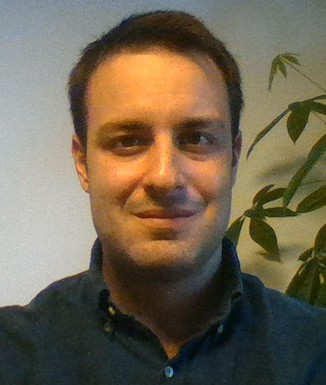Events Calendar
Abstract: Radiation therapy research is nowadays experiencing a thriving period with the discovery of new delivery modalities. Ultra-high dose rates (> 40 Gy/s) delivered in fractions of a second have shown to induce the so-called “FLASH effect”, namely a sparing effect on healthy tissues, while keeping same anti-tumor efficacy as conventional radiotherapy. These unique irradiation conditions bring along new challenges to dosimetry, as standard techniques are not suited under ultra-high dose rates. Along this line, a research project is ongoing at the University of Bern, aiming at developing new detectors for FLASH therapy based on miniaturized scintillators and optical fibers. After a short review on the dosimetry techniques used in FLASH studies so far, this talk will focus on recent results on the characterization of the developed detectors with different ultra-high dose rate beams, including protons, low-energy electrons, and very high-energy electrons. Overall, the detectors’ characteristics have been found to be promising for addressing several issues related to FLASH radiotherapy including Quality Assurance (QA), real-time beam monitoring, radiation protection, and small-field in-vivo dosimetry.

About the speaker: Pierluigi Casolaro received his PhD in physics with the label of European Doctorate from the University of Naples Federico II (Italy) in 2019. His scientific interests are in experimental physics, mainly dosimetry, neutron detection, beam diagnostics, medical physics and radiation hardness; moreover, he has a certification as Radiation Protection Expert. He is currently working as a Postdoctoral Fellow in Prof. Braccini’s group of medical applications of particle physics at the Albert Einstein Center for Fundamental Physics (AEC) - Laboratory for High Energy Physics (LHEP) of the University of Bern. He is PI of a Young Investigator project funded by the Bern Center for Precision Medicine (BCPM) that aims at the proof-of-principle of an innovative detector for FLASH cancer therapy. Previously, he worked for the National Institute for Nuclear Physics (INFN), in Italy, where he was PI of a Technology Transfer project on a patented dosimetry technique for the real-time dose monitoring in radiation hardness assurance tests. He has been teaching as an assistant for several lab experiments and, starting from last year, he has been in charge of the general coordination of two lab courses at the University of Bern. He is author of more than 40 scientific publications and an international patent. He received awards for his research activity including the IEEE Emilio Gatti and Franco Manfredi Best Ph.D. Thesis Award in Radiation Instrumentation and the Research Grant 2022 from the Scientific Association of Swiss Radiation Oncology (SASRO).
